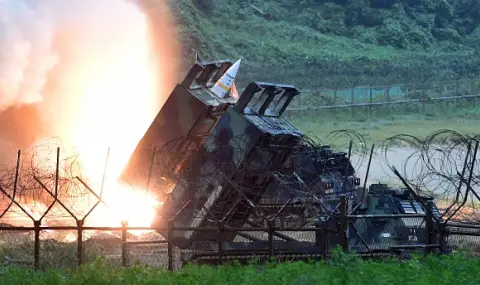The US decision to allow Ukraine to use US weapons deep inside Russian territory has not increased the risk of a nuclear attack, Reuters reported, citing cited five sources close to US intelligence.
But Russia is likely to expand its campaign of sabotage against European targets to increase pressure on the West over its support for Kiev, said the five sources, two senior officials, one congressman and two aides to US congressmen, who Reuters has talked.
A series of intelligence assessments over the past seven months have concluded that a nuclear escalation is unlikely to result from a decision to loosen restrictions on how Ukraine uses US weapons. That assessment has not changed since US President Joe Biden this month changed the US position on the use of weapons, the sources said.
"Assessments are consistent: ATAKMS missiles will not change Russia's nuclear calculations,” says one of the congressmen, referring to American missiles with a range of up to 306 km.
Russia's launch of a new ballistic missile last week, which analysts say was a warning to Washington and its European allies, does not change that conclusion.
One in five US officials say Washington believes Russia will not try to escalate the conflict by using nuclear weapons, but believes it will try to respond appropriately to what it sees as an escalation by USA. The official said the use of the new Russian missile is part of that effort.
The sources said US officials initially resisted the idea of allowing Ukraine to use long-range weapons against Russia, citing concerns about an escalation of the conflict and uncertainty about how Putin would react. Some of those initially resisting representatives included White House, Pentagon, and State Department officials. They have feared a lethal response against US military and diplomatic personnel and attacks on NATO allies. Other representatives were more concerned about nuclear escalation.
Biden changed his mind about using the long-range missiles because of North Korea's involvement in the war in Ukraine, which happened before the US presidential election, the five sources told Reuters.
Some American representatives already believe that fears of escalation, including nuclear, were exaggerated then, but stress that the overall situation in Ukraine remains dangerous and that the risk of nuclear escalation should not be written off completely.
Russia's ability to find other covert ways to retaliate against the West also remains a cause for concern.
„Russia's hybrid response is troubling,” said Angela Stent, director of the Eurasian, Russian and East European Studies Department at Georgetown University, referring to Russian sabotage in Europe.
The White House and the Office of the Director of National Intelligence declined to comment on the matter to Reuters. The Kremlin has also not yet responded to a request for comment on the intelligence assessments.
